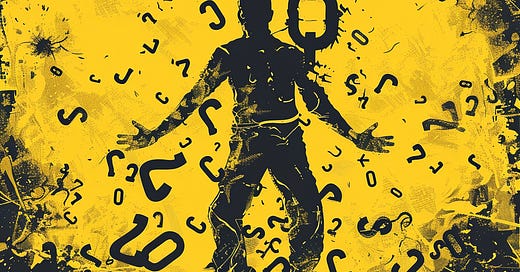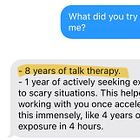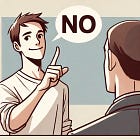Most people I help grow— even if they don’t know it at first— are deeply afraid of being disliked by other people.
I can tell because once they untangle this very fear, issues that seemingly have little to do with social interaction get resolved: chronic pain, depression, self-loathing, avoidance of applying for dream jobs, insomnia, and more.
Your failure has payoffs
🚧 2025 July 26: Currently revising/replacing this post 🚧
In meantime, see:
I tell them to remember this feeling. They can call it up whenever they want.
Finally, to cap it off, we also do some (imagined) stress-testing. But I’ll save that for another post.
Thanks to Stag Lynn, Kaj un, Damon Sasi, Brian Toomey, Epistea Residency, CFAR, Anna Salamon, Alex Zhu, and Nolan Kent for mentorship and financial support.












This is very insightful! It's the sort of thing where once I read it laid out like this, it makes perfect sense. But I wouldn't have thought through this logic and come to these conclusions myself. It's surprising, yet convincing.
Though when I reached the end of this piece, it seemed like a musical phrase that went unresolved, or ended where it began. "What would you like to do about that?" Be cognizant of social cues and feel free to express myself... Isn't that right back where this started?
Will have to keep thinking about this.
Sounds beautiful. I have had some of this untangle myself but it doesn't seem to last, although it has gotten better over time.
What makes it stuck for your clients?